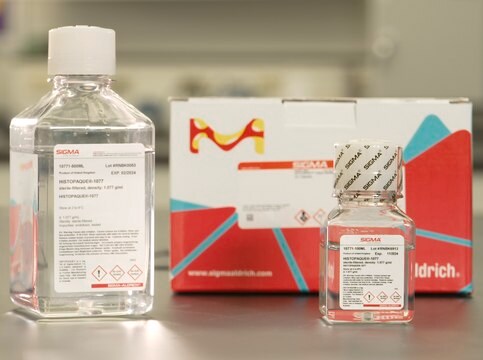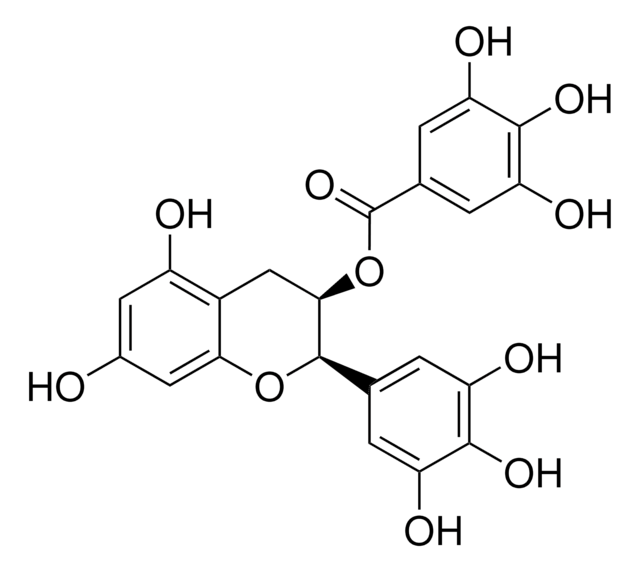C-12907
Human Mononuclear Cells (hMNC)
Isolated from peripheral blood, single donor, ultra-pure, 25 million cryopreserved cells
Synonym(e):
hMNC cells
About This Item
Empfohlene Produkte
Biologische Quelle
human peripheral blood
Verpackung
pkg of 25,000,000 cells
Morphologie
(mononuclear)
Methode(n)
cell culture | mammalian: suitable
Versandbedingung
dry ice
Lagertemp.
−196°C
Verwandte Kategorien
Allgemeine Beschreibung
Ursprung der Zelllinie
Anwendung
Qualität
Warnhinweis
Subkultur-Routine
Sonstige Hinweise
Haftungsausschluss
Lagerklassenschlüssel
12 - Non Combustible Liquids
WGK
WGK 1
Flammpunkt (°F)
Not applicable
Flammpunkt (°C)
Not applicable
Analysenzertifikate (COA)
Suchen Sie nach Analysenzertifikate (COA), indem Sie die Lot-/Chargennummer des Produkts eingeben. Lot- und Chargennummern sind auf dem Produktetikett hinter den Wörtern ‘Lot’ oder ‘Batch’ (Lot oder Charge) zu finden.
Besitzen Sie dieses Produkt bereits?
In der Dokumentenbibliothek finden Sie die Dokumentation zu den Produkten, die Sie kürzlich erworben haben.
Artikel
Mononuclear cells isolated from umbilical cord blood and adult peripheral blood and maintenance medium optimized for short term cultivation. Protocols for handling, cell passaging, media, and product use.
Cryopreserved blood cells and cell culture media for CD34+ human hematopoietic progenitor stem cells, monocytes, PBMCs, macrophages, dendritic and T-cells. Explore over 350 PromoCell products on Sigma.com.
Protokolle
Mononuclear cells isolated from umbilical cord blood and adult peripheral blood and maintenance medium optimized for short term cultivation. Protocols for handling, cell passaging, media, and product use.
Unser Team von Wissenschaftlern verfügt über Erfahrung in allen Forschungsbereichen einschließlich Life Science, Materialwissenschaften, chemischer Synthese, Chromatographie, Analytik und vielen mehr..
Setzen Sie sich mit dem technischen Dienst in Verbindung.




